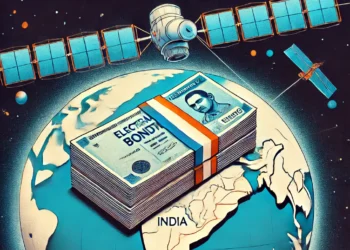Yesterday, at the IMC, Sunil Mittal delivered a speech that surprised many with his somewhat controversial statement on the allocation of spectrum for satellite services. This marked a significant shift from the stance his parent company has advocated to regulators since the inception of this debate. Traditionally, they have favored obtaining satellite service spectrum through administrative means rather than an auction process, as is standard for terrestrial services. Mittal stated, “Satellite companies with ambitions to enter urban markets and serve elite retail customers should obtain telecom licenses under the same conditions as everyone else, purchase spectrum, and pay license fees just like terrestrial telecom players.”
This article explores why Mittal felt compelled to make a statement that seemingly advocates for auction-based spectrum allocation for satellite services, especially when competing directly with terrestrial operators. We will delve into the implications of satellite services competing with terrestrial networks in urban areas and attempt to unravel the underlying significance of his remarks. This analysis aims to provide a clearer understanding of the potential shifts in policy and strategy affecting the telecommunications landscape.






